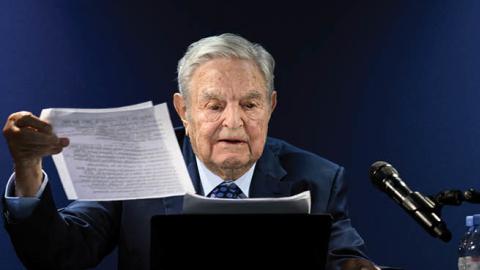Two American immigrants, both survivors of life under Nazi rule still making waves in their nineties, set the terms of debate at the World Economic Forum. Henry Kissinger, who celebrates his 99th birthday this week, made a virtual appearance to urge against attempts to defeat or marginalize Russia, calling on Ukraine to accept the territorial losses of 2014 to end the war. A few hours later, George Soros, in person at the forum at age 91, warned that victory in the war against Vladimir Putin’s Russia was necessary to “save civilization” and urged the West to provide Ukraine with everything it needs to prevail.
Their prescriptions are radically different, but their perceptions have much in common. Both men believe that American values and interests make the defense of peace in Europe a primary goal of American foreign policy. Both see themselves as defenders of what is best in Western civilization. Both see the war as a major shock to the world system and fear the consequences of a long military struggle. Messrs. Kissinger and Soros both believe that Russia is ultimately a secondary problem for American policy, and that the future of U.S.-China relations is of much greater significance in the long run.
Where they disagree is on the nature of the order and civilization they seek to conserve. Mr. Soros, much like the Biden administration, sees the dominant issue in world politics as a struggle between democracy and totalitarianism. Democracies are obliged by law to respect the rights of their citizens at home, and must conduct themselves under the restraints of international law abroad.
Read the full article in the Wall Street Journal

















